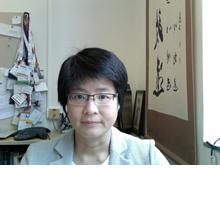Southampton researchers to take part in multi-centre fertility treatment study

Fertility experts at the University of Southampton are to take part in a £1.78 million study to test new treatments for ovarian hyperstimulation syndrome, a potential side effect of fertility treatment.
Ovarian hyperstimulation syndrome affects as many as 33 in 100 women. In the majority of cases, symptoms are mild, causing mild abdominal swelling, discomfort and nausea, and will recede quickly.
However, in three to eight per cent of these women, symptoms can worsen; leading to more serious complications which require admission to hospital. The multi-centre study seeks to identify new ways to stop the condition from worsening and prevent the need for women to require inpatient hospitalisation.
The Southampton team, led by Professor Ying Cheong, will help develop novel protocols for the early treatment of ovarian hyperstimulation syndrome to be used in an outpatient setting. These novel treatments include techniques to drain fluid that collects as a side effect of the condition from the abdomen and the use of a drug known as ‘antagonist’ which may be beneficial in shortening the course of the condition.
Once this is completed, a randomised controlled clinical trial will be available to women who develop ovarian hyperstimulation syndrome which will give them the opportunity to receive one of these treatments in an outpatient setting.
By providing the treatment in an outpatient setting, it could save the NHS an estimated £2.62million in inpatient hospital admissions per year, the research team believe.
Professor Cheong said: “This trial will see lead investigators from all over UK, come together in a collaborative manner, to solve a challenging medical problem. Ovarian hyperstimulation syndrome (OHSS) a potentially serious side effect of assisted conception, and for 40 years, there has been no consensus on how to best manage the condition.
“This trial will investigate novel techniques and drugs for treatment, so that women suffering from this condition in future, can get treatment earlier and quicker, reducing inpatient admissions and hopefully bring cost savings to the NHS. It will be a game-changer, and it's only possible when all the lead clinicians of the IVF centres around UK work together as a team, to collaboratively run a large multi-centre UK based study to solve this age-old clinical conundrum.”
The study is led by Sheffield Teaching Hospitals NHS Foundation Trust and funded through the National Institute for Health Research’s (NIHR’s) Health Technology programme, which aims to demonstrate the broader impact of healthcare treatments and tests for those who plan, provide or receive care from the NHS.
